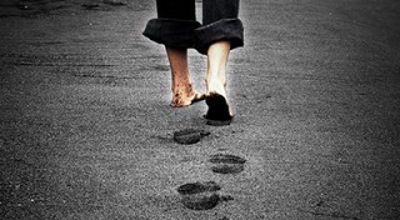Step By Step, ‘Small’ Cases Regain Legal Ground for the Gospel
Sometimes progress comes with what the world would call small steps.
It’s easier, perhaps, when we’re writing to you about Supreme Court cases, to understand the enormity of what’s at stake for you and your family in our daily struggle to defend religious freedom in America. But most of the hundreds of cases that will decide your future come in smaller packages, with a lot less fanfare. They simply reflect the determination of people just like you to stand for Christ in their daily walk and personal circumstances—and our determination to defend their right to do that.
Consider, for instance, the young elementary school student in Temple Terrace, Fla., who wanted nothing more than to invite some of his fellow fourth-graders to an Easter egg hunt in his neighborhood. He and his mother had organized the event to include games, snacks, candy and a presentation of the Easter story. They prepared invitations, and the boy took great care to hand them out during noninstructional time at school.
“No good,” said the principal, explaining in a note sent home to the parents that students “are not allowed to pass out fliers related to religious events or activities.” Yet, oddly, other children were given permission all the time to pass out invitations to birthday parties, Halloween festivities, soccer games and more.
“Public schools should encourage, not shut down, the free exchange of ideas,” says legal counsel Matt Sharp, who joined other Alliance Defending Freedom staff and allied attorneys in filing a lawsuit against the Hillsborough County School District on behalf of the student.
“A ban on a simple invitation of this sort, offered from one student to another during noninstructional time, is disturbing and unconstitutionalm,” he says.
In the wake of our lawsuit, a federal court struck down the district’s policies last fall, and now the school has revised its code accordingly.
A change of policy was also in order for the East Baton Rouge Recreation and Park Commission in Louisiana, which had banned a Sidewalk Sunday School sponsored by a local ministry.
Voices of Mercy Outreach Ministries had obtained permission from the commission to use a local park for its activities with at-risk youth living in the low-income area way back in 2005. Five years into the program, though, the commission did an about-face, saying the outreach violated a policy that prohibits using the park for religious purposes. (Curiously, officials had allowed at least one other religious group to hold an event at the park.)
Our attorneys filed suit on behalf of the program, and the commission recently agreed, as part of a settlement of that lawsuit, to amend its policy and allow the Sunday school to continue.
“Faith-based groups have the same constitutionally protected freedom as any other community group to hold activities at a public park,” says senior legal counsel Joel Oster. “We commend the commission for recognizing that such groups shouldn’t be singled out for discrimination—especially a group like this that has provided such selfless service to at-risk youth and their parents for many years.”
Small steps, perhaps, in the great scheme of things—but crucial victories, as by God’s grace we regain, step by step, the legal ground lost to those who would close public doors to the gospel.
These are the victories that are subtly shaping what tomorrow will look like in the world where our children and grandchildren live out their lives and faith. Please join me in praying for our attorneys and for all those standing firm—in cases “big” and “small”—for the right to live openly, gracefully and thoughtfully for Christ in their community.
Alan Sears is president, CEO and general counsel for Alliance Defending Freedom.














































